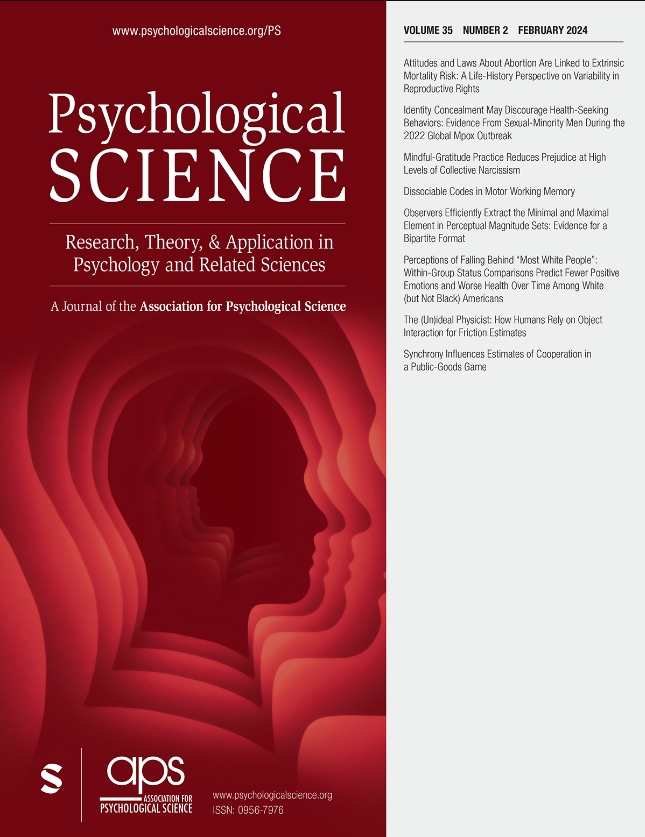搬迁模式对心理压力的影响
IF 4.8
1区 心理学
Q1 PSYCHOLOGY, MULTIDISCIPLINARY
引用次数: 0
摘要
本研究探讨了搬迁模式如何在不同的搬迁时间和空间中影响灾难幸存者的心理压力。研究分析了 2009 年台风 "莫拉克 "在台湾造成的 1236 个受灾家庭的 10 年数据集,通过动态时间扭曲(DTW)确定了六种搬迁模式。研究采用分层线性模型,揭示了环境因素、社会文化因素和家庭层面的社会经济因素对心理压力的明显影响。研究显示,灾后迅速找到稳定住所的幸存者最初的压力水平较低,但从长期来看,他们的压力有所增加。相反,居住地不稳定的幸存者最初的压力较高,但长期压力较低。通过比较类似的模式,我们发现,在长途搬迁之前有更多时间做准备、寻找机会、应对或适应次要压力的幸存者面临的压力水平较低。这些发现表明,与时间或搬迁距离相比,搬迁模式对灾难幸存者心理压力的影响更大。本文章由计算机程序翻译,如有差异,请以英文原文为准。
The Impact of Relocation Patterns on Psychological Stress
This study investigated how relocation patterns affect disaster survivors’ psychological stress on the diverse durations and spaces of relocation. It analyzed a 10-year data set of 1,236 families affected by 2009’s Typhoon Morakot in Taiwan, identifying six relocation patterns through dynamic time warping (DTW). A hierarchical linear model was utilized, revealing the discernible impacts of environmental factors, sociocultural factors, and family-level socioeconomic factors on psychological stress. The study revealed that survivors who quickly found stable residences after the disaster initially experienced lower stress levels, but in the long term, their stress increased. Conversely, those with unstable residences experienced higher initial stress but lower long-term stress. Comparing similar patterns, we found that survivors who had more time for preparation and who sought opportunities, coped, or adapted to secondary stressors before long-distance relocation faced lower stress levels. These findings suggest that relocation patterns have a greater impact on the psychosocial stress of disaster survivors than time or relocation distance.
求助全文
通过发布文献求助,成功后即可免费获取论文全文。
去求助
来源期刊

Psychological Science
PSYCHOLOGY, MULTIDISCIPLINARY-
CiteScore
13.30
自引率
0.00%
发文量
156
期刊介绍:
Psychological Science, the flagship journal of The Association for Psychological Science (previously the American Psychological Society), is a leading publication in the field with a citation ranking/impact factor among the top ten worldwide. It publishes authoritative articles covering various domains of psychological science, including brain and behavior, clinical science, cognition, learning and memory, social psychology, and developmental psychology. In addition to full-length articles, the journal features summaries of new research developments and discussions on psychological issues in government and public affairs. "Psychological Science" is published twelve times annually.
 求助内容:
求助内容: 应助结果提醒方式:
应助结果提醒方式:


